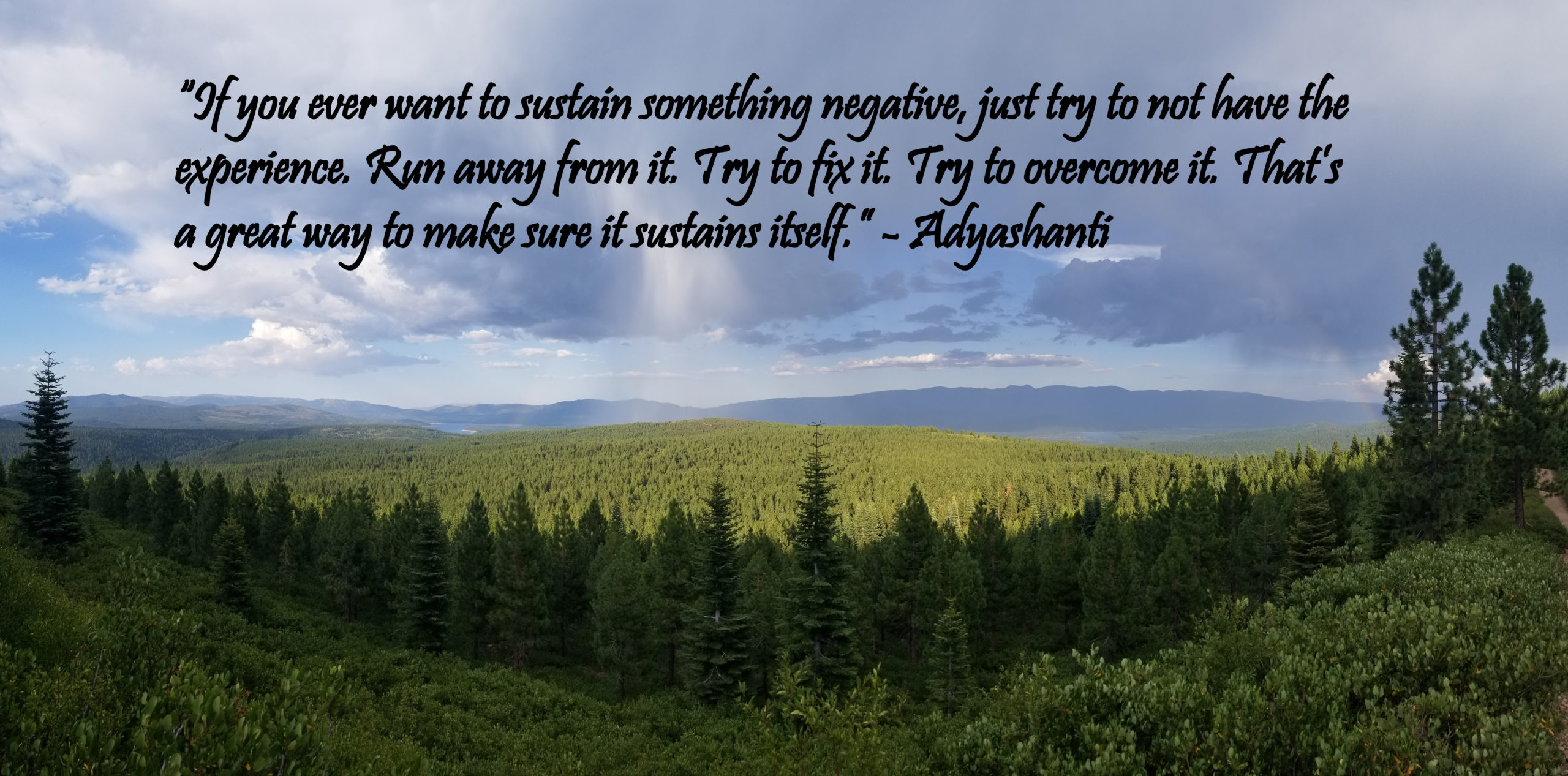“If you ever want to sustain something negative, just try to not have the experience. Run away from it. Try to fix it. Try to overcome it. That’s a great way to make sure it sustains itself.”
Adyashanti
The wisdom of this quote seems to be better understood today than it was 10, 20, or 30 years ago. I’m reminded of other refrains:
“What we resist persists.”
“Feel it to heal it.”
Something I’d point out though, is that the truth of this quote will depend on one’s definition of the word “experience.” If by experience we mean a “life situation” (e.g. a problem in the real world that needs solving, such as a lack of education, income, or skill), then we actually can “fix” the problem, although usually it takes a while (months or years), otherwise we would have solved it before we even thought all that much about it.
But I think the way the word “experience” is meant here is an inner state of thoughts and emotions.
A lot of people just nod and move on when they are told not to “overcome” a negative experience, but then we go on doing just that. It sounds nice in theory, so why then don’t we all constantly lean in to our difficult emotional states? Why is there such a strong tendency to avoid them?
I’d say for one thing, running away sometimes does work in the short term.
We all know some tricks and tactics to sweep our feelings under the rug, shove them in the closet, or other metaphor. We might use external substances like alcohol or food, or go to some mental content like movies or TV. We might distract ourselves with other people, love, sex, gambling, thrill seeking, etc. We all have our addiction “bottles” that we go to when things are really “bad.”
But in the end we haven’t solved anything, we’ve just kicked the can down the road. And we’ve added a 2nd can of the fallout and hangover from the addiction we’ve employed to postpone dealing with the 1st can.
The most subtle and insidious of addictions is simply our own thoughts. We fantasize, problem-solve, get and stay busy, and get lost in the stream of past and future. But the emotions are here and now, in our bodies.
I think the second reason we don’t put this wisdom into practice so often is that our logical minds don’t really comprehend the way emotional pain feels. If we don’t have practice leaning in to emotional pain, it immediately feels like something has gone terribly wrong, and we bail out of it before we even consciously realize it. Mental dissociations are incredibly automatic.
I find it helpful to make sense of the phenomenon, “what we resist persists” in terms of biology. Our “negative” experiences happen when we are somewhere along the spectrum of “fight or flight” (i.e. sympathetic nervous system activity). And what happens when we “resist” or “run away”? Does not “run away sound suspiciously like “flight,” as in “fight or flight”? We’re already in flight from the negative experience, and then we flee from the flight. Flight of flight. Sometimes we might even flee from the flight of flight.
Or, we might fight with the negative experience. An example would be getting angry at ourselves for being angry. This would be a fight against our fight.
It’s like falling into quicksand by struggling. It’s like getting frustrated by a knotty tangle of string and thrashing it, making it worse. It’s like trying to calm a water surface by poking at it.
The way to get from fight or flight / sympathetic nervous system into rest and digest / parasympathetic nervous system, is to relax. If we’re wound up in a “negative” experience, that means relaxing into the anxiety. Quite the paradox.
It means stopping the resistance and struggle and letting go of control. It means trusting that our bodies and nervous systems will steady themselves if we will only get our conscious minds out of the way.
